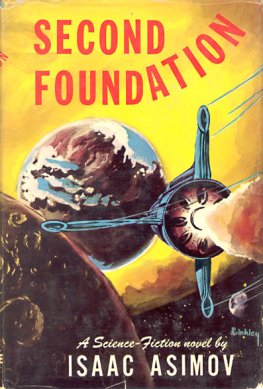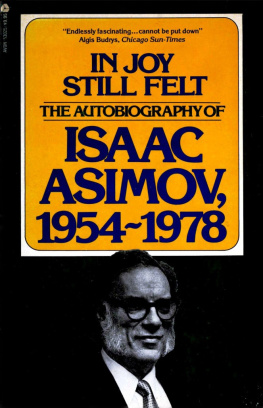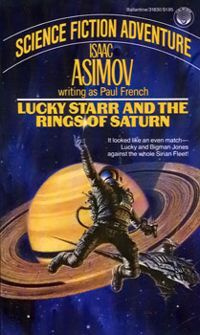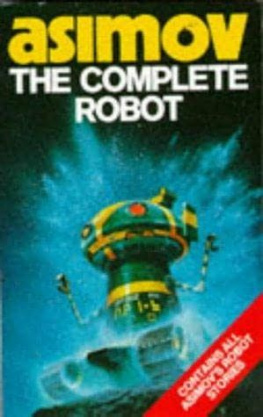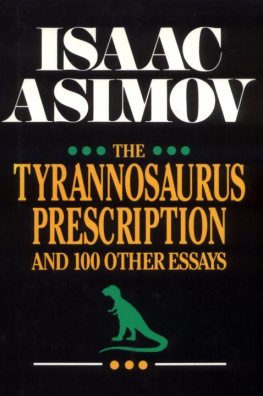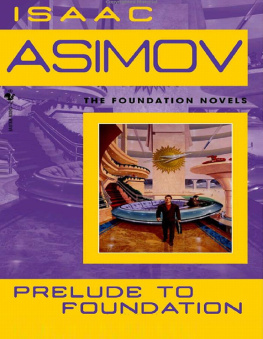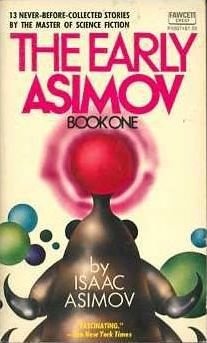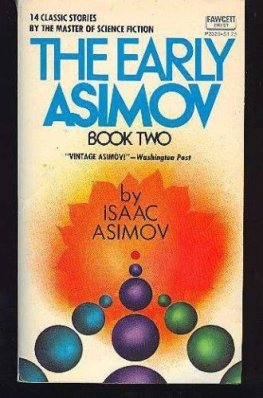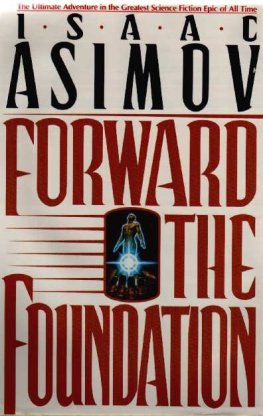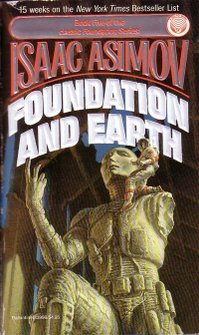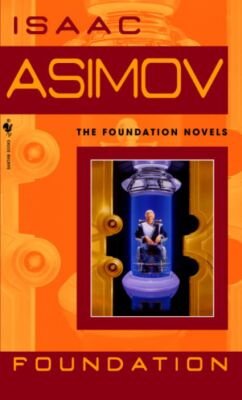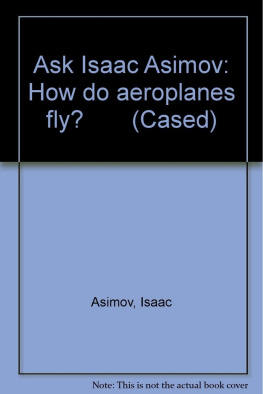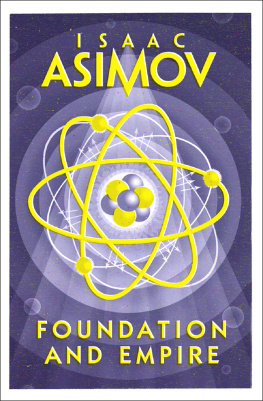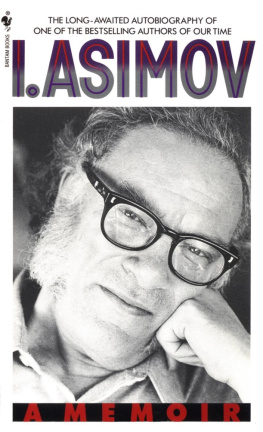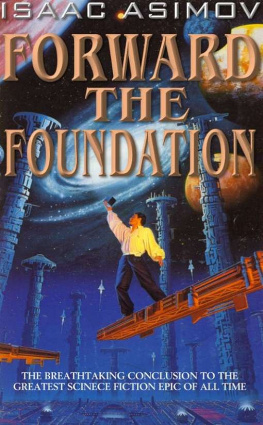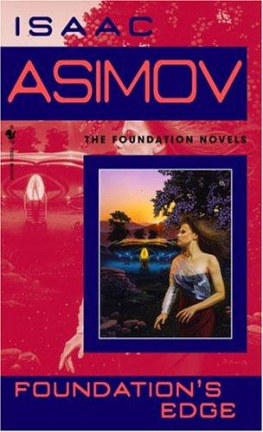Isaac Asimov - Second Foundation
Here you can read online Isaac Asimov - Second Foundation full text of the book (entire story) in english for free. Download pdf and epub, get meaning, cover and reviews about this ebook. genre: Science fiction. Description of the work, (preface) as well as reviews are available. Best literature library LitArk.com created for fans of good reading and offers a wide selection of genres:
Romance novel
Science fiction
Adventure
Detective
Science
History
Home and family
Prose
Art
Politics
Computer
Non-fiction
Religion
Business
Children
Humor
Choose a favorite category and find really read worthwhile books. Enjoy immersion in the world of imagination, feel the emotions of the characters or learn something new for yourself, make an fascinating discovery.
- Book:Second Foundation
- Author:
- Genre:
- ISBN:0-553-29336-2
- Rating:3 / 5
- Favourites:Add to favourites
- Your mark:
- 60
- 1
- 2
- 3
- 4
- 5
Second Foundation: summary, description and annotation
We offer to read an annotation, description, summary or preface (depends on what the author of the book "Second Foundation" wrote himself). If you haven't found the necessary information about the book — write in the comments, we will try to find it.
Second Foundation — read online for free the complete book (whole text) full work
Below is the text of the book, divided by pages. System saving the place of the last page read, allows you to conveniently read the book "Second Foundation" online for free, without having to search again every time where you left off. Put a bookmark, and you can go to the page where you finished reading at any time.
Font size:
Interval:
Bookmark:
Isaac Asimov
Second Foundation
Prologue
The First Galactic Empire had endured for tens of thousands of years. It had included all the planets of the Galaxy in a centralized rule, sometimes tyrannical, sometimes benevolent, always orderly. Human beings had forgotten that any other form of existence could be.
All except Hari Seldon.
Hari Seldon was the last great scientist of the First Empire. It was he who brought the science of psycho-history to its full development. Psycho-history was the quintessence of sociology, it was the science of human behavior reduced to mathematical equations.
The individual human being is unpredictable, but the reactions of human mobs, Seldon found, could be treated statistically. The larger the mob, the greater the accuracy that could be achieved. And the size of the human masses that Seldon worked with was no less than the population of the Galaxy which in his time was numbered in the quintillions.
It was Seldon, then, who foresaw, against all common sense and popular belief, that the brilliant Empire which seemed so strong was in a state of irremediable decay and decline. He foresaw (or he solved his equations and interpreted its symbols, which amounts to the same thing) that left to itself, the Galaxy would pass through a thirty thousand year period of misery and anarchy before a unified government would rise once more.
He set about to remedy the situation, to bring about a state of affairs that would restore peace and civilization in a single thousand of years. Carefully, he set up two colonies of scientists that he called "Foundations." With deliberate intention, he set them up "at opposite ends of the Galaxy." One Foundation was set up in the full daylight of publicity. The existence of the other, the Second Foundation, was drowned in silence.
In Foundation (Gnome, 1951) and Foundation and Empire (Gnome, 1952) are told the first three centuries of the history of the First Foundation. It began as a small community of Encyclopedists lost in the emptiness of the outer periphery of the Galaxy. Periodically, it faced a crisis in which the variables of human intercourse, of the social and economic currents of the time constricted about it. Its freedom to move lay along only one certain line and when it moved in that direction, a new horizon of development opened before it. All had been planned by Hari Seldon, long dead now.
The First Foundation, with its superior science, took over the barbarized planets that surrounded it. It faced the anarchic Warlords that broke away from the dying Empire and beat them. It faced the remnant of the Empire itself under its last strong Emperor and its last strong General and beat it.
Then it faced something which Hari Seldon could not foresee, the overwhelming power of a single human being, a Mutant. The creature known as the Mule was born with the ability to mold men's emotions and to shape their minds. His bitterest opponents were made into his devoted servants. Armies could not, would not fight him. Before him, the First Foundation fell and Seldon's schemes lay partly in ruins.
There was left the mysterious Second Foundation, the goal of all searches. The Mule must find it to make his conquest of the Galaxy complete. The faithful of what was left of the First Foundation must find it for quite another reason. But where was it? That no one knew.
This, then, is the story of the search for the Second Foundation!
Part I
Search By The Mule
1. Two Men and the Mule
THE MULE - It was after the fall of the First Foundation that the constructive aspects of the Mule's regime took shape. After the definite break-up at the first Galactic Empire, it was he who first presented history with a unified volume at space truly imperial in scope. The earlier commercial empire at the fallen Foundation had been diverse and loosely knit, despite the impalpable backing at the predictions of psycho-history. It was not to be compared with the tightly controlled 'Union of Worlds' under the Mule, comprising as it did, one-tenth the volume of the Galaxy and one-fifteenth of its population. Particularly during the era of the so-called Search
Encyclopedia GalacticaThere is much more that the Encyclopedia has to say on the subject of the Mule and his Empire but almost all of it is not germane to the issue at immediate hand, and most of it is considerably too dry for our purposes in any case. Mainly, the article concerns itself at this point with the economic conditions that led to the rise of the "First Citizen of the Union" - the Mule's official title - and with the economic consequences thereof.
If, at any time, the writer of the article is mildly astonished at the colossal haste with which the Mule rose from nothing to vast dominion in five years, he conceals it. If he is further surprised at the sudden cessation of expansion in favor of a five-year consolidation of territory, he hides the fact.
We therefore abandon the Encyclopedia and continue on our own path for our own purposes and take up the history of the Great Interregnum - between the First and Second Galactic Empires - at the end of that five years of consolidation.
Politically, the Union is quiet. Economically, it is prosperous. Few would care to exchange the peace of the Mule's steady grip for the chaos that had preceded, On the worlds that five years previously had known the Foundation, there might be a nostalgic regret, but no more. The Foundation's leaders were dead, where useless; and Converted, where useful.
And of the Converted, the most useful was Han Pritcher, now lieutenant general.
In the days of the Foundation, Han Pritcher had been a captain and a member of the underground Democratic Opposition. When the Foundation fell to the Mule without a fight, Pritcher fought the Mule. Until, that is, he was Converted.
The Conversion was not the ordinary one brought on by the power of superior reason. Han Pritcher know that well enough. He had been changed because the Mule was a mutant with mental powers quite capable of adjusting the conditions of ordinary humans to suit himself. But that satisfied him completely. That was as it should be. The very contentment with the Conversion was a prime symptom of it, but Han Pritcher was no longer even curious about the matter.
And now that he was returning from his fifth major expedition into the boundlessness of the Galaxy outside the Union, it was with something approaching artless joy that the veteran spaceman and Intelligence agent considered his approaching audience with the "First Citizen." His hard face, gouged out of a dark, grainless wood that did not seem to be capable of smiling without cracking, didn't show it - but the outward indications were unnecessary. The Mule could see the emotions within, down to the smallest, much as an ordinary man could see the twitch of an eyebrow.
Pritcher left his air car at the old vice-regal hangars and entered the palace grounds on foot as was required. He walked one mile along the arrowed highway - which was empty and silent. Pritcher knew that over the square miles of Palace grounds, there was not one guard, not one soldier, not one armed man.
The Mule had need of no protection.
The Mule was his own best, all-powerful protector.
Pritcher's footsteps beat softly in his own cars, as the palace reared its gleaming, incredibly light and incredibly strong metallic walls before him in the daring, overblown, near-hectic arches that characterized the architecture of the Late Empire. It brooded strongly over the empty grounds, over the crowded city on the horizon.
Within the palace was that one man - by himself - on whose inhuman mental attributes depended the new aristocracy, and the whole structure of the Union.
Font size:
Interval:
Bookmark:
Similar books «Second Foundation»
Look at similar books to Second Foundation. We have selected literature similar in name and meaning in the hope of providing readers with more options to find new, interesting, not yet read works.
Discussion, reviews of the book Second Foundation and just readers' own opinions. Leave your comments, write what you think about the work, its meaning or the main characters. Specify what exactly you liked and what you didn't like, and why you think so.

